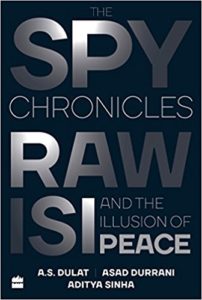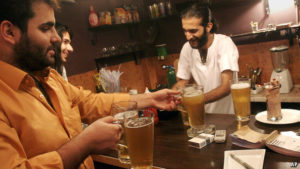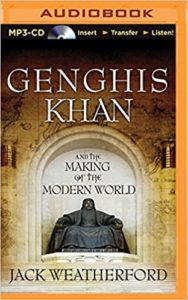This is a very simple poll. I posted a couple of these questions on Twitter (@omarali50) and want to do the same here. The idea is to test a hypothesis (not about what will happen to the Indian religious landscape, but what do readers of this blog THINK will happen to it, and why) which will be part of a later blog post I plan. For now, please take this very simple 3 question survey by scrolling down within the survey below.. and comment on the post as you see fit.. We may learn something, or at least have some interesting discussions..
Author: Omar Ali
Political Engineering in Pakistan Part II
From Dr Hamid Hussain.
June 12, 2018
Following piece is mainly the result of questions form non-Pakistanis to explain the context. It may not be very interesting for Pakistanis as they are already well informed and it seems lengthy and a bit boring. The noise is at a very high pitch making reasonable discourse very hard. Reminds me tenth century Arab poet Mutanabbi’s words, “With so much noise, you need ten fingers to plug your ears”.
Summary could be single sentence quotes;
Political Leaders: Reminds me Liddelhart’s words “The prophets must be stoned; That is their lot, and the test of their fulfillment. But a leader who is stoned may merely prove that he has failed in his function through a deficiency of wisdom, or through confusing his function with that of a prophet”.
Generals: The Times, April 6, 1961 issue statement that “it is difficult to envisage some thirty or forty generals and a smaller number of admirals and air force commanders appointed solely by Providence to be the sole judges of what the nation needs”.
Judiciary: Jorge Ubico of Guatemala’s words that “My justice is God’s”.
Enjoy.
Hamid
Political Engineering – Modus Operandi
Hamid Hussain
“The establishments in the US, Pakistan and India are usually working for their own good rather than for the good of their public. Shaking them might not be a bad idea”. Former Director General of Inter Service Intelligence (ISI) Lieutenant General (R) Asad Durrani quoted in Spy Chronicles
Pakistanis will be voting for general elections on 25 July 2018. Events of the last one year have raised many questions about the process. The gulf between important institutions is widening by the day. Attitudes have hardened and everyone is rallying behind their respective wagons. Pakistan’s power stool is three-legged and at one time known as ‘troika’. In the past, President, Prime Minister and Chief of Army of Staff were the three legs of this stool. Change of President to a ceremonial role by taking most of his powers removed this leg. In due course, this leg was replaced by Judiciary. The three legs are uneven with executive as shortest, followed in size by Judiciary and then army. There is an inherent element of instability in this arrangement. Continue reading Political Engineering in Pakistan Part II
Review: The Spy Chronicles
This is a review of “The Spy Chronicles” (not by me, but by our regular contributor Dr Hamid Hussain), a recent book co-authored by two former chiefs of ISI (the Pakistani intelligence agency) and RAW (the Indian intelligence agency). The book has generated some controversy (a lot of it far-fetched and irrational) and the Pakistani author (Retired General Asad Durrani) has been called to GHQ to provide an explanation and has been barred from leaving the country until an enquiry (conducted by a 3 star general) has been conducted.
The review is by Dr Hamid Hussain.

The full title is: Spy Chronicles: RAW, ISI and the Illusion of Peace. A. S. Dulat, Assad Durrani and Aditya Sinha (Delhi: Harper Collins), 2018.
This book is neither a memoir nor an organized attempt to explain a theory. It is essentially a transcript of conversations. It covers India Pakistan relations, Kashmir, Afghanistan and other general regional and international topics. Two informed individuals from rival countries engaged in a candid conversation and some of their views are not fully in line with the official stance of their respective countries.
In view of unresolved issues between India and Pakistan, there have been several international attempts to bring high former officials of both countries together for dialogue. One effort was to bring former intelligence officials of both countries together. This effort called ‘Intel Dialogue’ was organized by the University of Ottawa. Dulat and Durrani met each other during these ‘Track II’ efforts and developed a kind of friendship. Continue reading Review: The Spy Chronicles
Drinking (alcohol) During Ramadan

The Washington Post has an article by Khalid Diab about the complications that arise around the issue of obtaining alcohol during Ramadan. Excerpts are posted later. As Shahab Ahmed points out in his magnum opus (What is Islam), drinking alcohol is prohibited in Islam, but it is also an established feature of Islamicate culture; i.e. not only is it regularly used (by a minority), it is celebrated in poems and songs, there are rituals associated with its use, everyone knows someone who drinks and drinkers have their own (albeit not always comfortable) place in society. In some countries (Saudi Arabia, Iran) it is strictly prohibited and users can expect serious penalties if caught, but even in those countries a great deal of regular communal drinking does go on. A few more countries (like Pakistan) have prohibition, but with more exceptions than exist in Iran and Saudi Arabia (non-Muslims and foreigners can buy alcohol, some high end hotels have bars, and so on). In several other countries (Egypt, Tunisia, Indonesia, etc) alcohol is widely available and can be purchased in supermarkets and even in small roadside kiosks (what would be called a Khoka in Pakistan). But in all these countries, there is a visible change during Ramadan: many regular drinkers voluntarily give up alcohol for the month and those who continue to drink may go deeper underground than usual. I have friends who cannot go to sleep without one (or several) nightcaps, but who will not touch drop during Ramadan. They invariably get drunk on Eid.
Some excerpts from Khalid Diab’s article follow:
Although alcohol is considered haram (prohibited or sinful) by the majority of Muslims, a significant minority drinks, and those who do often outdrink their Western counterparts. Among drinkers, Chad and a number of other Muslim-majority countries top the global ranking for alcohol consumption.

Book Review: Genghis Khan and the Making of the Modern World

Jack Weatherford is an anthropologist who has spent many years researching the Mongols in general and Genghis Khan in particular. The book is a very sympathetic portrayal of Genghis Khan and his descendants and their impact on world history. It is a very easy read and is an excellent summary of the rise of this amazing man and his (relatively few; a total population of less than a million) people to greatness. And there can be no doubt that Temujin is one of the most remarkable characters in world history; one of those (few) heroes about whom you can confidently say that without them, the history of his people would have been VERY different indeed. He is a one-man refutation of the idea that individuals, no matter how prominent, do not really matter and all we need to study are the aggregate/impersonal/stochastic processes that drive history. Continue reading Book Review: Genghis Khan and the Making of the Modern World
Political Engineering in Pakistan. The Military View
From our regular contributor, Dr Hamid Hussain
Following piece about recent clouds on Pakistan’s scene was mainly for non-Pakistani audience as many questions/confusions came my way.
This is an attempt to understand the view from barracks although I strongly oppose such moves from military. This is first of two part. Second part will deal with modus operandi.
Hamid
Political Engineering – View from the Barracks
Hamid Hussain
In July 2017, disqualification of Pakistan’s Prime Minister Mian Nawaz Sharif by Supreme Court again opened the debate about the role of country’s powerful army. This was one of the most politicized decision of country’s Supreme Court. In April 2017, Supreme Court not only ordered formation of a Joint Investigation Team (JIT) but went ahead and nominated its members. It included a serving Brigadier Kamran Khurshid of Military Intelligence (MI) and a retired Brigadier Nauman Saeed of Inter-Services Intelligence (ISI). Supreme Court disqualified Sharif based on JIT investigation. In the aftermath of Sharif disqualification, many political changes including change of provincial government in Baluchistan achieved by defection of several members, defeat of government’s nominee for Senate chairman position and defection of many politicians from ruling political party Pakistan Muslim League (Nawaz) (PML-N) to rival Pakistan Terek-e-Insaaf (PTI) were alleged to be orchestrated by the army brass.
Continue reading Political Engineering in Pakistan. The Military View
Kargil War
This topic comes up every once in a while on twitter, so I am reposting an old post with a few new links and videos added at the end.. The main point is simple: Musharraf and a few of his cronies (Javed Hasan, General Aziz, General Mahmood), without having thought it through, conducted a foolish operation in Kargil that cost hundreds of lives on both sides and set back (perhaps destroyed forever) the chances of peace between India and Pakistan (set in motion by Vajpayee’s historic bus journey to Lahore). The operation was not only a strategic disaster, it was a tactical disaster..
First, some links with details about the operations: Continue reading Kargil War
For “Strategic Reasons”, Did Britain Want Pakistan in 1947?
I got these via an email from an author who apparently wishes to remain anonymous. Since any post about partition gets a lively debate going, I though I would put these up (again, I did not write these points, I am just the messenger 🙂 ):
After the End of The Second World War
A. Soviet Union was the strongest country in Europe.
B. It had already amalgamated central Asian republics into it.
C. In Europe it merged traditional Russian influence states like Ukraine, Latvia, Belarus etc.
D. It had the largest area under occupation in Europe where it had no
plan to release them from its influence.
E. East Germany, Poland, Yugoslavia, Checkosolovakia , Romania,
Albania Austria , Hungary etc were all under soviet influence.
F. To remain neutral, Austria had to work really hard to remain
equidistant from the West and the Soviet Union.
G. Afghanistan had been historically unstable and Soviet Union had
reached Uzbekistan, Tajikistan etc on its northern border.
H. The west tried really hard to keep Iran in their sphere of influence.
I. UK, France were nearly bankrupt because of the war and could not influence global geopolitical space.
J. US filled up the boots of UK and France as it was the only country in Western Hemisphere which came out more powerful and with a robust
economy at the end of the war.
K. Soviet Union despite its spread lacked a good warm water port or
access to seas in warmer zones.
L. Practically it was the largest landlocked entity ever created in history.
M. US and UK were apprehensive that Soviet Union will try to gain
access to warm seas through Afghanistan and western India.
N. It is said that both US and UK approached Congress for support to
create bases in NWFP, FATA, Balochistan and Kashmir to contain the
expansion of Soviet Union.
O. Congress refused to oblige or agree to the request.
What was happening in India :
A. In 1942 congress launched quit India movement, which was suppressed
and entire leadership of congress was put behind bars.
B. The Congress leadership spent entire war in Jail or house arrest.
C. But Muslim League and Jinnah supported the war efforts and were in the
forefront of collecting support , asking people to join war effort etc.
D. Jinnah opposed quit India movement and was with Britain during this time.
E. He along with other Muslim Leaguers were the only Indian leaders who were out of jail.
Speculation :
A. It is speculated that Jinnah was the only major leader who was in
direct and continuous contact with the British government.
B. It is speculated that the viceroy sounded off Jinnah when he took any
decision about the war effort and India’s participation in the war.
C. It is speculated that the relationship between Jinnah and viceroy and
British senior officials was most cordial.
D. It is speculated that during this period Britain sounded off Jinnah
on bases in northwest India to which Jinnah had no problems and
readily agreed but also cautioned that he was a minor player who could not
gurantee such a stance in an independent India.
E. It is said that Mountbatten was given 2-3 years to find a settlement about India but it is speculated that intelligence sounded Britush government on Jinnah’s illness and it is speculated that British knew that Jinnah had end stage TB of lungs and he may not survive 3 years.
F. It was also known that once news of his illness is made public, Congress will play waiting game to see him dead than decide.
G. It is speculated that when Jinnah came to know that Liaqat Ali Khan
knew about his illness and had tried to sell this information to
Bhulabhai Desai he was so angry and upset with Liaqat that he did not
speak to him for a long time.
H. It is speculated that news of Jinnah on the last stage of TB had spooked the British establishment so much that the date of independence was advanced to 15 August 1947 through a decision of the Cabinet, from June 1948, which had been approved by the British parliament.
Related reading:
The Shadow of the Great Game: The Untold Story of India’s Partition by Narendra Singh Sarila. Reviewed here.
Geo-political and Strategic Implications related to the Emergence of the Indian and Pakistani Nation. A paper whose full text can be found here.
Continue reading For “Strategic Reasons”, Did Britain Want Pakistan in 1947?
Review: 12 Rules for Life (Jordan Peterson)

This is not the sort of book that usually interests me, but what with the controversy surrounding this man, I decided to look it up. To my surprise, when I requested it at my local library I discovered that I was 67th on the hold list! The man has clearly struck a chord; I have never seen a hold list that long in our (rather small) library. Luckily the system seems to have bought more copies, so I only had to wait a couple of months to get my copy. The book lists 12 rules that are an “antidote to chaos”. Somewhat to my surprise, they are generally good rules, though some of them are rather obvious, and even a bit hokey. Since many of you are not going to read the book, I will list them here:
- Stand up straight with your shoulders back
- Treat yourself like someone you are responsible for helping
- Make friends with people who want the best for you
- Compare yourself to who you were yesterday, not to who someone else is today
- Do not let your children do anything that makes you dislike them
- Set your house in perfect order before you criticize the world
- Pursue what is meaningful (not what is expedient)
- Tell the truth – or, at least, don’t lie
- Assume that the person you are listening to might know something you don’t
- Be precise in your speech
- Do not bother children when they are skateboarding
- Pet a cat when you encounter one on the street
Continue reading Review: 12 Rules for Life (Jordan Peterson)
Pressure on Social Media in Pakistan
A recent BBC report discussed how contractors employed by ISPR (Inter-Services Public Relations, the media arm of the Pakistani armed forces) monitor and harass people who are perceived as being disloyal or anti-military. Today I saw an email from a friend who is a very patriotic Pakistani with mainstream (pro-democracy) views, who was just kicked out of an “elite” Whatsapp group because the group admin was under pressure from “sources”. I am excerpting the relevant part of the email here with his identity removed; to me the interesting part is that this is a relatively small group of people, and they are not Left wing activists or ethnic nationalists or starry eyed peaceniks, they are mostly bankers and Westernized members of the elite, deeply committed to Pakistan and the idea of Pakistan.. that someone was looking at them and making specific requests to remove members is a new and rather extreme step in the spread of XiJinping thought in Pakistan..
“Yesterday, this member-moderator along with two others became its victims when we were unceremoniously removed from a so-called “prestigious” WhatsApp group of “who’s who” by its moderator without notice or assigning any reason. Our sin? Arguing against the Miltablishment’s policies in the context of Nawaz Sharif’s interview. One member out of 250 in this WhatsApp group took a principled stand by voluntarily opting out in our support. Some other members I understand are writing in our defense. Surprisingly, those Miltablishment supporters who had initiated the debate on this issue (Nawaz Sharif’s interview) and had used the filthiest and most polarizing of languages against the group’s stated policy were neither touched nor even reprimanded.
The moderator of this WhatsApp group subsequently and reportedly explained to someone that “continuous bashing of military (sic)….was landing the group in trouble” and that “he was under pressure from some quarters” to take action (remove the members) – this could be a reference to outside monitors (intelligence agencies) or inside die-hard supporters of Miltablishment. Either way, the thought-police is out in full force. If a WhatsApp group of 250 is monitored, the power of the Miltablishment is complete and total.
Having come back to the country after X-years, I have been incredibly saddened and depressed at the strident polarization one is a witness to. No one is listening to the other side and temperatures are as high as I clearly remember they were at the time of military action in Bangladesh in 1971, when a brother was pitted against a brother..”
An extract from the BBC report (which is worth reading in its entirety):
By establishing the email address associated with the metadata of the document, Amnesty researchers traced it to an Islamabad-based cyber security expert, Zahid Abbasi.
When confronted by the BBC, Mr Abbasi confirmed he had previously worked for a year for the Pakistani military’s public relations team (ISPR) and that the document was genuine.
He admitted his role included tracing the IP addresses of “people abusing institutions” online and “compromising their accounts” by, for example, sending them fake Facebook login pages.